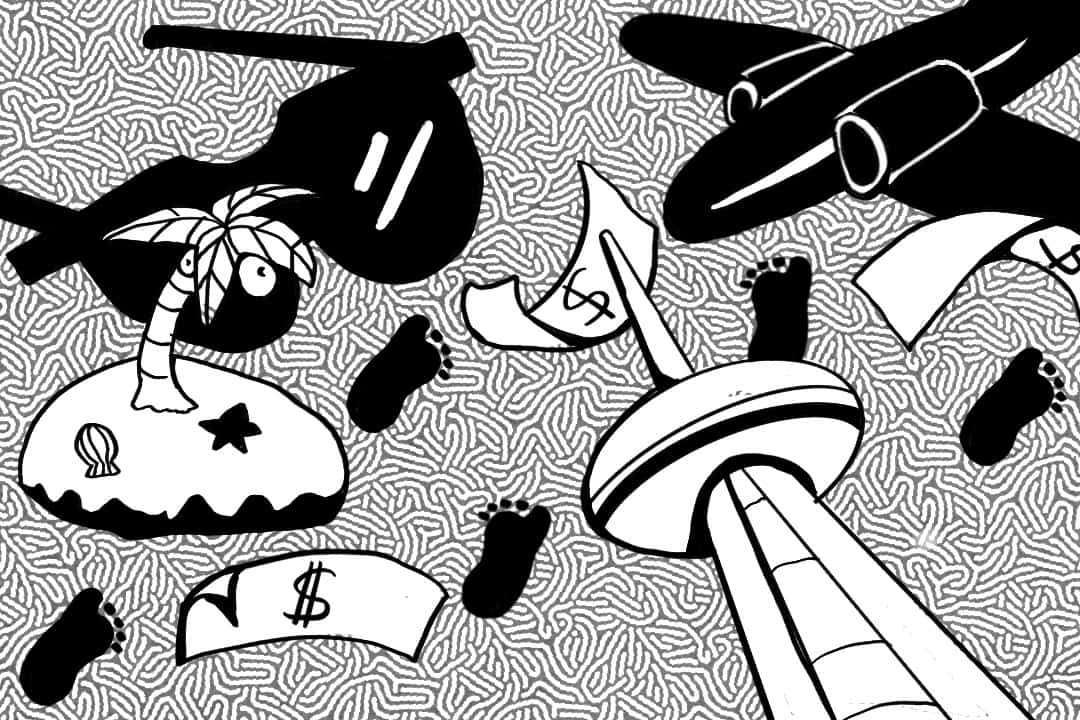Imagine planning a trip to Costa Brava, Spain. After navigating missed buses and trains, you suddenly find yourself on an impromptu road trip with strangers you just met — all on a shoestring budget.
As students, the allure of exploring new cultures is often dampened by the harsh reality of travel costs. However, with a bit of ingenuity and flexibility, you can still embark on incredible journeys without draining your bank account.
Budgeting for flights and accommodations
Flight prices can vary significantly based on the day of the week, time of day, and the season. Avoid inflated costs during peak travel times, such as summer weekends or major holidays, and aim to book three to five months in advance.
To save cost, Tuesday can be the best day to book flights, as airlines tend to release deals early in the week. Additionally, flights departing on Tuesdays, Wednesdays, and Thursdays have been found to be 1.9 per cent cheaper than flights on weekends. Use websites like Google Flights, Skyscanner, or Kayak to compare prices across different dates.
When it comes to finding accommodations, platforms like Airbnb, Booking.com, and Expedia have often led me to surprising deals. Alternatively, seeking unconventional accommodations can also enhance your travel experience by lowering costs and providing unique experiences. During my eight weeks touring Europe last summer, I opted exclusively for hostels, which can offer a bed at a fraction of the cost of hotels.
Destination showdown
Choosing the right destination can make or break a budget travel plan.
Eastern European countries like Hungary offer breathtaking landscapes and cultural richness at a much cheaper price than some Western European countries. For instance, according to Budget Your Trip, the average daily travel cost is around $115 in Hungary, compared to $346 in France.
Southeast Asia is also a hotspot for budget travellers. In countries like Vietnam, Thailand, and the Philippines, you can enjoy street food meals for less than six dollars and accommodations for as little as $13.75.
To find destinations like these, utilize resources such as Numbeo — a crowd-sourced database of user data on cities and countries — to compare the cost of living and travel expenses between your home and potential destinations. Next, explore travel blogs to uncover insights from seasoned travellers who focus on lesser-known locales. You can also search TikTok and Instagram reels to get a realistic feel for a place. This preparation can ensure your travel diary is as full as your wallet.
Eating on the cheap
In many countries, street food offers an authentic, delicious, and affordable way to taste local specialties. In Thailand, dishes like Pad Kra Pao sell for under two dollars at street stalls, offering a taste of local flavours for less than the average cost of a coffee in Toronto, which is just over three dollars.
Visiting local markets is not only a way to save on meals but also an adventure in itself. La Boqueria in Barcelona or the Borough Market in London are perfect for sampling a wide range of fresh and local foods without high restaurant markups.
Often, the best food spots are where the locals eat. Avoid tourist traps where prices are high and quality is often compromised. In many hostels or Airbnbs you can even prepare simple meals with ingredients from local grocers or farmers’ markets — plus, you get to shop alongside locals!
Making every penny count
One of the best parts of travelling is experiencing the local culture and natural beauty, which often comes for free.
Public parks, hikes, markets, neighbourhood walks, and city-sponsored events are fantastic ways to dive into the local scene without spending too much. In cities like Barcelona and Tokyo, free performances and festivals — such as the La Mercè Festival and the Sanja Matsuri — not only provide entertainment but also cultivate a deeper appreciation for local culture.
Another way to save significantly when accessing museums and sites is by leveraging student discounts and investing in tourist passes. For example, the Budapest Card I used in Hungary offered free entry to attractions, unlimited public transportation, and discounts at restaurants.
Overall, I believe the essence of travel lies not in lavish expenditures but in the wealth of experiences you can gather. Each city has its rhythms, each market has its own flavour, and every sunset a new hue, regardless of how much you spend.
Travel is about the stories you can tell, and these are seldom tied to the price of a hotel room or a fancy meal. So pack your bags, set your budget, and prepare for an adventure that promises as much enrichment as it does savings!



No comments to display.